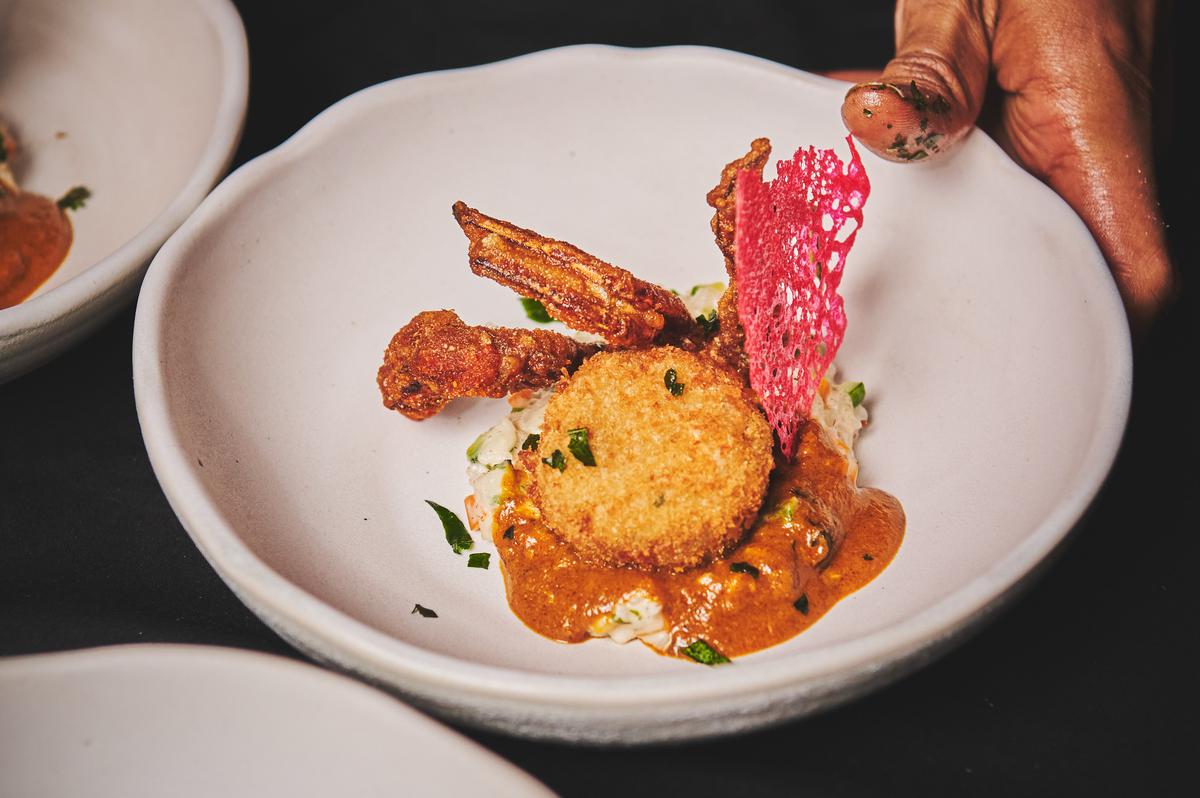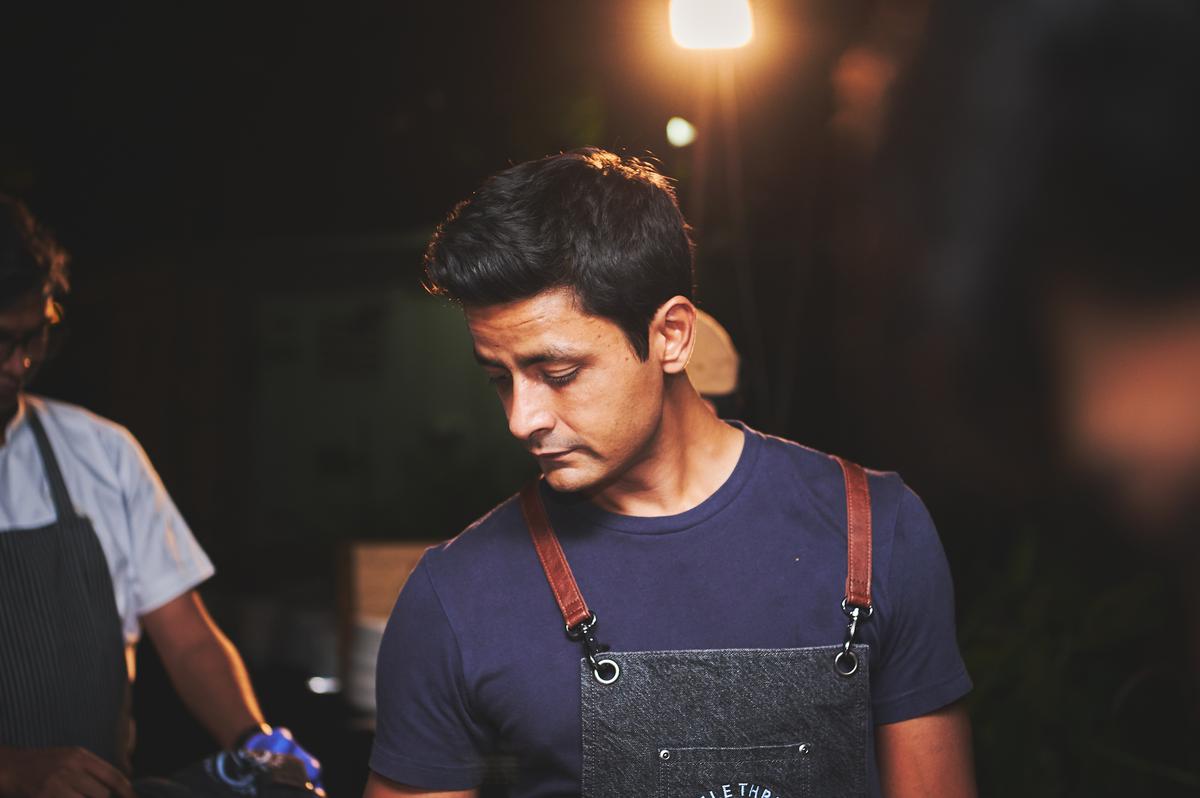Recent years have seen chefs after famous chef walking away from the traditional restaurant kitchen setup, reshaping the country’s foodscape as they find inventive new ways to connect with customers
Recent years have seen chefs walking away from the traditional restaurant kitchen setup, reshaping the country’s foodscape as they find inventive new ways to connect with customers
This monsoon, popular pastry chef Pooja Dhingra is working to combine two of her favourite things: chai and hot chocolate. A Le15 chai spice hot chocolate mix is in the works, says the Mumbai chef, and will be the latest offering on her website, which ships across the country.
When the pandemic and its many lockdowns forced Dhingra to close down the popular South Mumbai branch of her cafe in 2020, she quickly shifted focus on the booming online space. Le15 Patisserie’s online operations means that she can provide cake mixes, her signature macarons and more — to multiple cities, beyond Mumbai. She explains the “several factors that made us decide to take on multi-city delivery. Scaling FMCG across India was an easier option since we could control production and quality by producing everything under one roof. Setting up standalone stores in separate cities would be more capital intensive, require a higher operational setup, and would take much longer to execute.”
Though Dhingra loves feeling connected with her customers one-on-one, she is also vocal about the positives of going online. “Currently, 15% of our business comes from consumers outside Bombay. We’re seeing this number grow every day.” It also offers some curious insights about her customer base. She says, “What was super interesting to see was that while our hot chocolate was a bestseller in the northern states, it even did well in hotter cities like Goa.”
Looking beyond the restaurant
Dhingra is not the only Indian chef to have segued beyond the kitchen. In recent years, many famous chefs, like Manu Chandra and Thomas Zacharias, stepped away from restaurant brands almost synonymous with their name. Neither restaurant nor chef seems to have suffered from this mutual parting of ways.
In fact, it has given the latter opportunities to explore their love of food in completely different ways.
While Zacharias took Instagram by storm with his travels exploring varied food cultures of India, eventually channelling it all into his recently-launched platform Locavore, Chandra’s bespoke catering service, Single Thread Catering, made its presence felt at Cannes within the very first month of its existence.
TextEditorOver the past few years, particularly the ones dominated by the pandemic, which accelerated some career decisions, chefs across India have become increasingly aware of the wide scope that lies outside traditional restaurant kitchens. But for aspiring chefs still figuring out their path, Chandra has some words of advice: “I’ve been in restaurants for 20 years before I started doing this [catering] as a structured business. At the end of the day, the food industry is based on production. As long as your output is good, you will do well.”
He adds that there are pros and cons to both. “For example, catering is a cyclical process. There isn’t the same level of sustained activity or structure that someone just starting out would need, in order to learn. Having said that, there is much to learn here. You are cuisine agnostic: you are getting to learn about different kinds of food.”
A good case in point is his own Single Thread Catering which has served, at separate private events, everything from a Bengal-inspired sorshe (mustard) baked sea bass with panch phoron crumble and caper relish, to Japanese line-caught yellowfin tuna tataki tarts with jamun ponzu, slaw and wasabi foam, to an irreverent falooda baked Alaska with rose cremeux, pistachio cheesecake and saffron ice cream. “We just made a Greek-themed menu and cocktails for a 25th birthday bash, and an Andhra Western menu for a sit down to celebrate a new home,” he says.
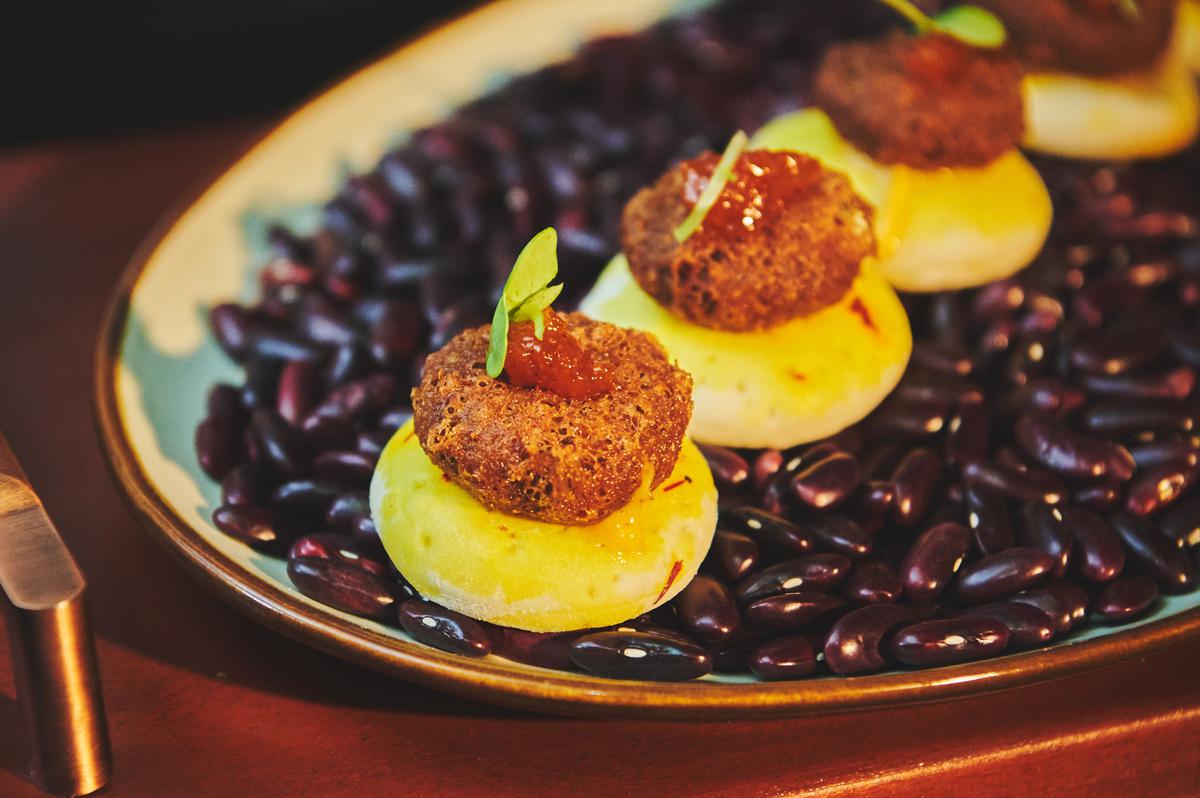
Dishes by Chef Manu Chandra’s Single Thread Catering
Unsurprisingly, with Chandra at the helm, the bar goes toe-to-toe with everything else, in terms of both creativity and flair. “If wine is being served, we carry crystal decanters to the event. If the vintage is a particularly special one, we use ultra light hand blown glassware for the customer to be able to glean the best from it — inventories one will never find in rentals, nor ever have at home,” says the chef. Cocktails so far have included jamun Old Fashioned and sparkling mango martinis.
Fond farewells
Like Chandra, Zacharias also reiterates that his considerable social capital in the industry helped him make this significant shift in direction, and move out of The Bombay Canteen.
At the same time, he does deny that his decision was a partly emotional one. “I was starting to feel like I wasn’t doing enough. I spent a few years thinking about it; it’s not like I made a decision on the spot. I had communicated this to my business partner at The Bombay Canteen a year-and-a-half before the pandemic had even started. The decision was calculated and measured, but it wasn’t a financial one at all. It was more an existential one, though I did not know back then what shape my next step would take.”
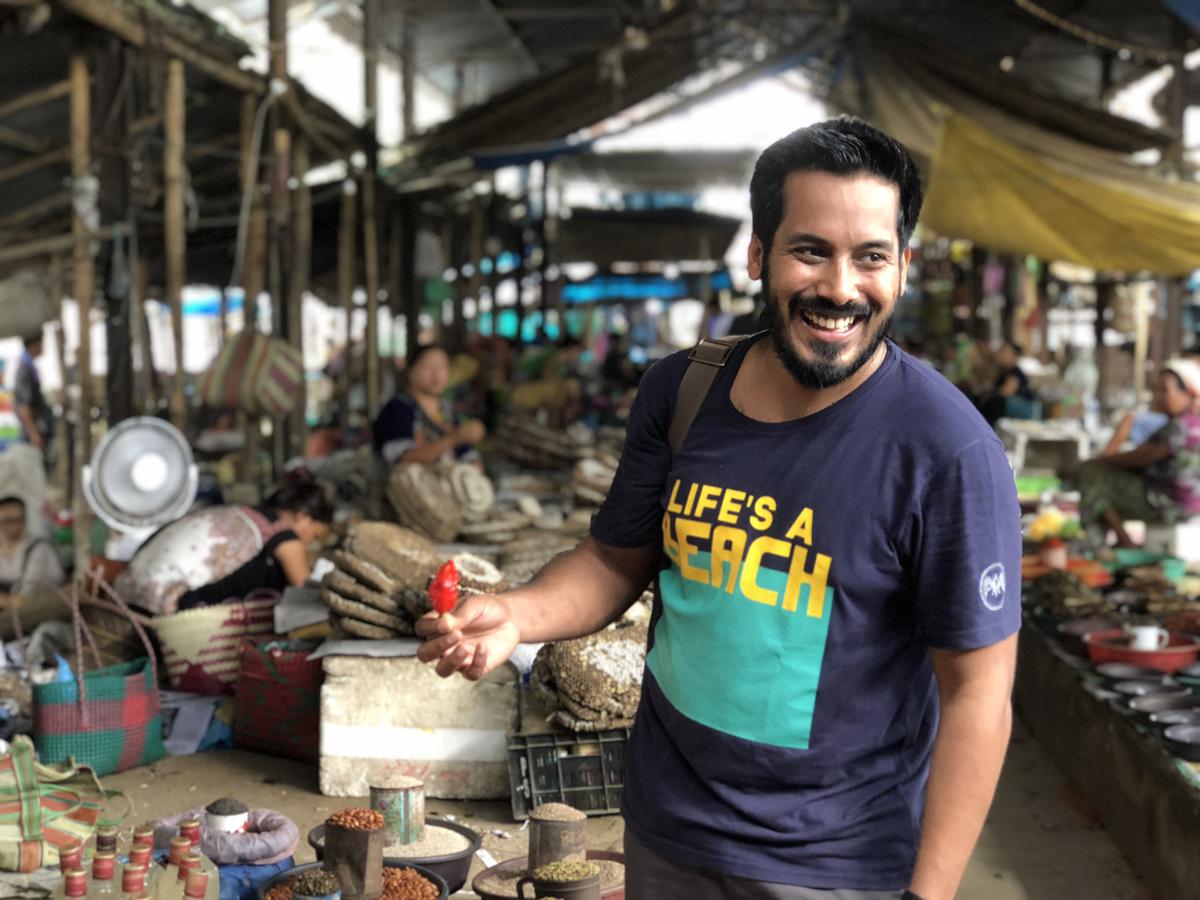
Chef Thomas Zacharias during his travels, at Dimapur Supermarket
He still did not know it, when he eventually left the restaurant in December 2020. “I wanted to give myself the freedom to just be. I decided not to rush myself, which also comes from a certain amount of privilege. I mapped out everything that I feel passionate about in the space of food — no holds barred, what would I really like to do? One was to figure out how regional ingredients could be sourced and made more accessible; another was creating a content platform for regional food; to work with schools and institutional organisations to change perceptions; to create a community of people who care about issues around food.”
Eventually, he managed to combine most of these. His current work with Locavore came almost as an organic shift. “My work at The Bombay Canteen involved a lot of travel for research that made me increasingly passionate about changing how people see and behave based on their food choices. For me, it was never just about being creative about the food I put on the menu; it was about how I could use it as a mechanism to change perceptions. There was a clear disconnect between what I saw out there in the country, and what the people with money ate and consumed back in Bombay. A lot of our regional cuisines and traditions were not finding space in the mainstream, and were at the risk of getting lost.”
Locavore highlights just that: all the “cultures and the incredible food producers and farmers who are doing fascinating work, but are somehow still not getting the appreciation that they deserve.” For instance, the platform has tied up with a local brand based in Thrissur, Kerala, called Forest Force, who “work with tribal communities to create value-added products from minor forest produce like honey, wild fern and the shatavari ( Asparagus racemosus) plant.”
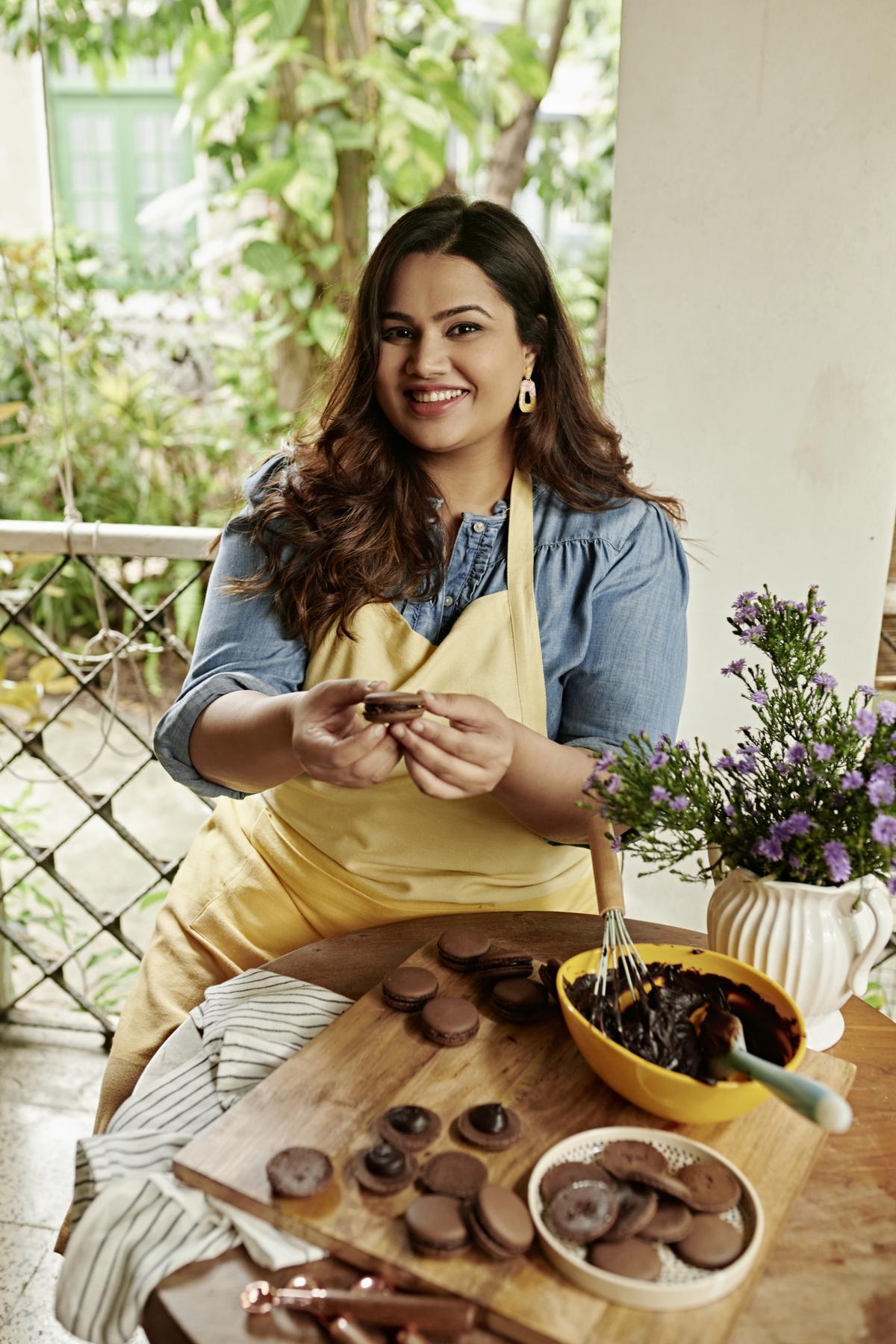
Pastry chef Pooja Dhingra, founder at Le15
Building on love
Meanwhile, in Dimapur, Smokey Joe’s Restaurant & Grill head chef and proprietor Joel Basumatari found a way to further his mission of familiarising the country with northeastern flavours. Enter Saucy Joe’s, a brand of sauces that has been shipping to multiple states since 2018, and is currently “working on a Perilla seed paste as a substitute for peanut butter. It is gluten free and will be developed in such a way that it can be used as a spread and can also go in marination.”
He recalls (over the phone) that whenever he cooked a dish at the start of his career, he used to pay attention to not only the ingredients, but also the sauces he would cook ingredients in, or add final touches to a dish with. “I saw that the sauce can become the talk of the table,” he adds.
Joel explains how he had to create demand from scratch in new markets. His greatest tool in this — his USP — is the ingredient. He uses everything that is found locally in Dimapur, especially the chillies. Apart from the King chilli sauce, he has a smoked one local chilli sauce that he makes with local smoked dried chillies. He also has a schezwan sauce under his brand and a suman powder [a tangy berry powder] that can be used to make lemonade or teas.
On the other hand, like Chandra and Zac, Dhingra also banked on her pre-existing foundations to overcome challenges: “Starting a new vertical in the middle of the first wave was extremely difficult and challenging. It was also very new to me and I had to learn everything from scratch. However, the good part for Le15 is that there was enough demand in the market already and once we figured out our backend, going live online and hitting our sales numbers was easy.”
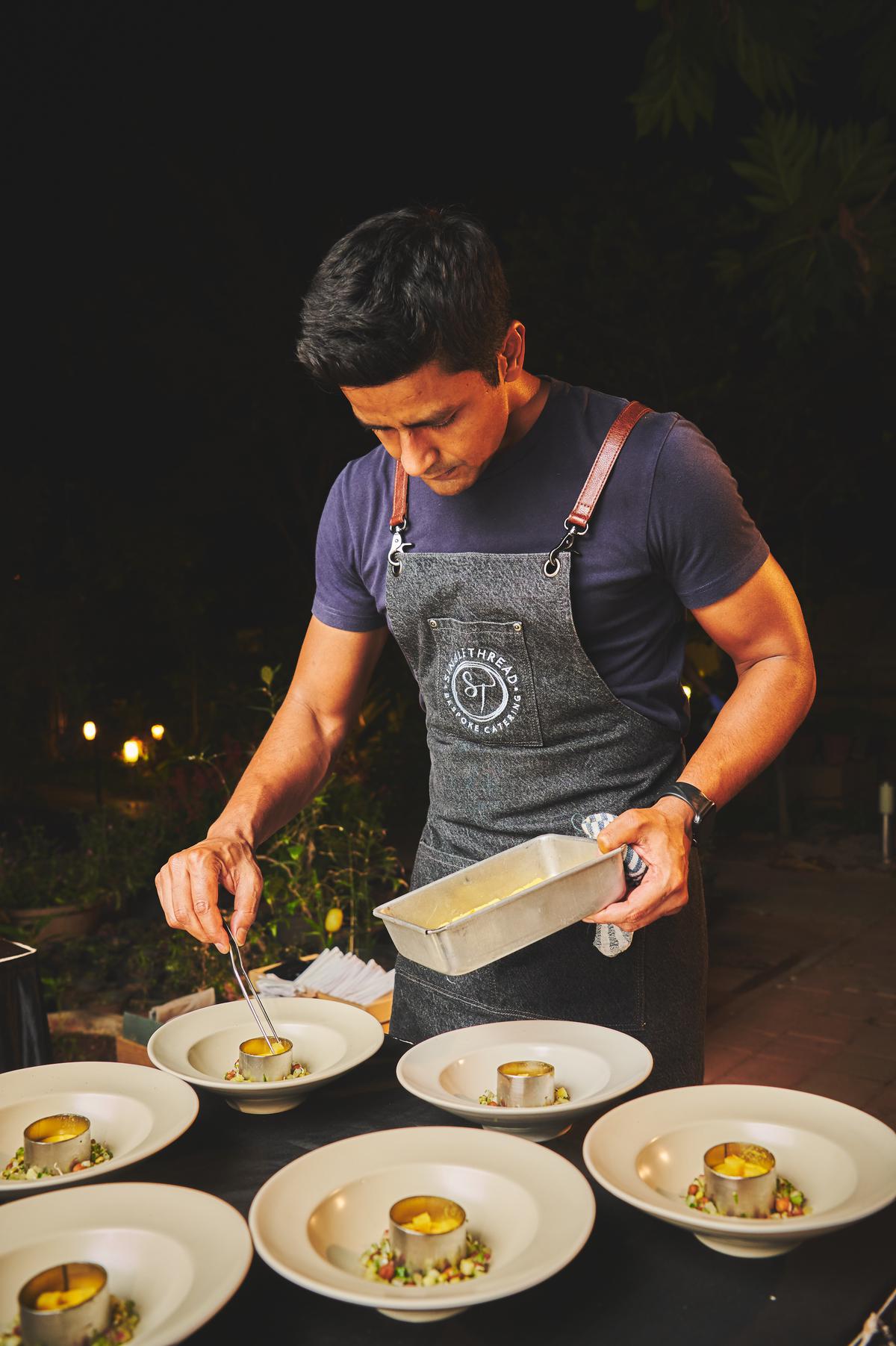
Chef Manu Chandra at a private event being catered by Single Thread Catering
An eye on the market
Each of these passion projects relies on keen research and feedback. Dhingra, for instance, says, “We have a property called the Le15 Taste Club, which has over 15,000 people from Instagram from across the country. We pick a small batch size before closing on each product and send a sample to the Taste Club. We get their feedback and only then do we move forward with the product.”
On the other hand is Chandra, who has good reason to feel confident about the rising demand for bespoke catering. “We’ve only just launched, so quantifying is difficult at this stage. But June already looks quite full, whilst May was taken up almost entirely by Cannes,” he says.
He adds, “Bespoke catering is seeing a huge rise across the country. People have built lovely homes — large kitchens and entertainment spaces are now a norm. To be able to effectively use it, this type of service fits the bill perfectly. Also, people want to go beyond the ubiquitous for their special occasions now. One look at the Indian wedding market will tell you that the appetite for curated experiences is huge.” At the end of the day, we all want something special to set our occasions apart.
